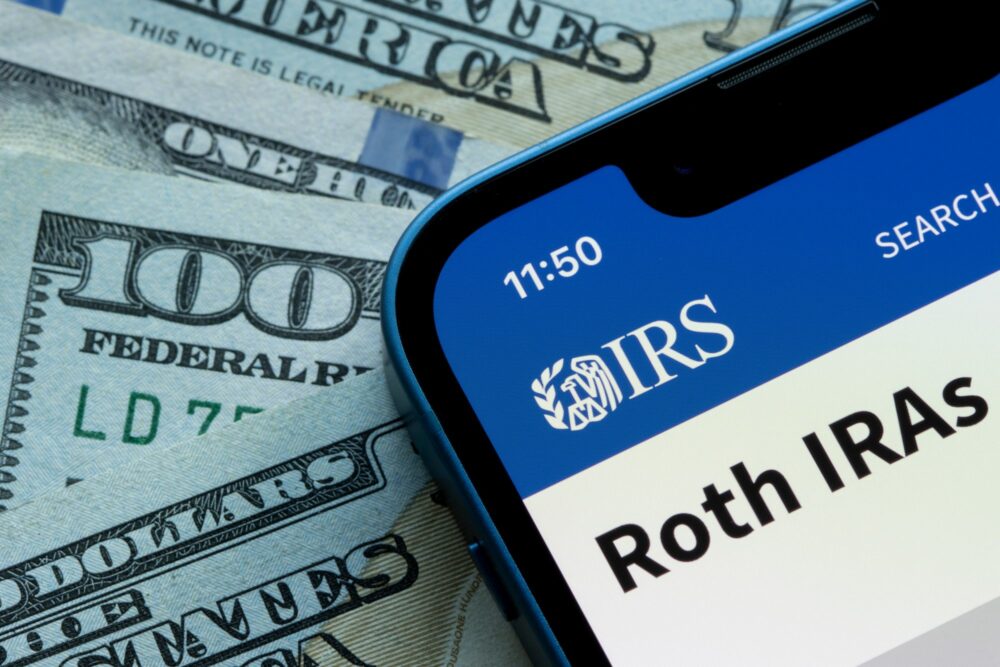Posted by PrimeTrust Advisors | March 25, 2024
It’s Tax Season: Looking at the Tax Advantages of Roth Accounts

By: Chip Hunt and Jamie Hunt
As tax season rolls around again, it’s a convenient reminder to consider the most tax-advantageous investment vehicles available. One often-overlooked option is the Roth account, which offers unique tax benefits that can significantly impact your financial future. Despite its advantages, many individuals still lack a clear understanding of how Roth accounts differ from traditional tax-deferred accounts like 401(k)s or IRAs. Let’s delve into the distinct tax benefits of Roth accounts and why they might be the ideal choice for your financial goals.
What is a Roth Account?
Before diving into its tax advantages, let’s briefly outline what a Roth account is. Named after Senator William Roth, a Roth account is a retirement savings vehicle that allows individuals to contribute after-tax income, meaning you pay taxes on the money before it enters the account. Roth account options are becoming more popular within traditional 401(k) plans and there are also Roth IRA account options available.
Roth investment returns grow tax-free and qualified withdrawals in retirement are also tax-free.
Don’t miss the important distinction between tax-free and tax-deferred. Tax-deferred means you will eventually have to pay taxes. Tax-free means you will never have to pay taxes on qualified withdrawals.
Tax Benefits Unveiled
1. Tax-Free Growth: One of the most significant advantages of Roth accounts is the tax-free growth they offer. Unlike traditional accounts where your earnings are taxed upon withdrawal, the growth within a Roth account accumulates tax-free. This means your investments can compound over time without the worry of future tax liabilities, potentially resulting in substantial tax savings in the long run.
Roth investment returns grow tax-free and qualified withdrawals in retirement are also tax-free.
2. Tax Diversification: Roth accounts provide an excellent opportunity for tax diversification in retirement planning. By having both pre-tax (e.g., traditional 401(k)s) and after-tax (Roth) retirement savings, you can strategically manage your tax liabilities in retirement. This flexibility allows you to optimize withdrawals based on your tax situation, potentially minimizing your overall tax burden. For example, some people like to withdraw smaller amounts of money out of their taxable 401(k)/IRA accounts and pay taxes in the 10% to 12% brackets and then switch to Roth account tax-free withdrawals to avoid creeping into the higher tax brackets for those withdrawals.
3. No Required Minimum Distributions (RMDs): Unlike traditional retirement accounts, Roth IRAs do not require you to take mandatory distributions after reaching a certain age (currently 73 for most retirement accounts). This feature can be particularly advantageous for individuals who don’t need the funds immediately in retirement and want to continue growing their savings tax-free.
4. Tax-Free Withdrawals in Retirement: Perhaps the most appealing aspect of Roth accounts is the ability to make tax-free withdrawals in retirement. Since you’ve already paid taxes on the contributions, qualified distributions, including earnings, are entirely tax-free, providing a reliable source of tax-free income during retirement.
Making the Right Choice
While Roth accounts offer compelling tax advantages, they may not be suitable for everyone. Factors such as current tax bracket, future tax expectations, and retirement goals should all be considered when deciding between Roth and traditional retirement accounts. Consulting with a financial advisor can help you evaluate your individual circumstances and determine the most tax-efficient strategy for your retirement savings.
Final Thoughts
Understanding the tax benefits of Roth accounts is essential for making informed financial decisions. By harnessing the power of tax-free growth, diversification, and flexibility, Roth accounts can play a crucial role in building a tax-efficient retirement portfolio. Whether you’re just starting your career or nearing retirement, incorporating Roth accounts into your financial plan can pave the way for a more secure and tax-efficient retirement.
In conclusion, while the tax implications of retirement savings can be complex, the benefits of Roth accounts are undeniable. By maximizing tax-free growth, diversifying your retirement savings, and enjoying tax-free withdrawals in retirement, Roth accounts offer a compelling solution for savvy investors seeking to optimize their tax strategy and secure a comfortable retirement.
This article is provided for informational purposes only. It is always best to counsel with your financial advisor or your tax professional to ensure that you make the best decision for your circumstances.
We’re Here to Help
If you have questions or want to explore this further, you can schedule a call with us using the calendar.
Or… you can do it the old fashion way by calling us directly at (864) 552-4020. We would welcome your call.
